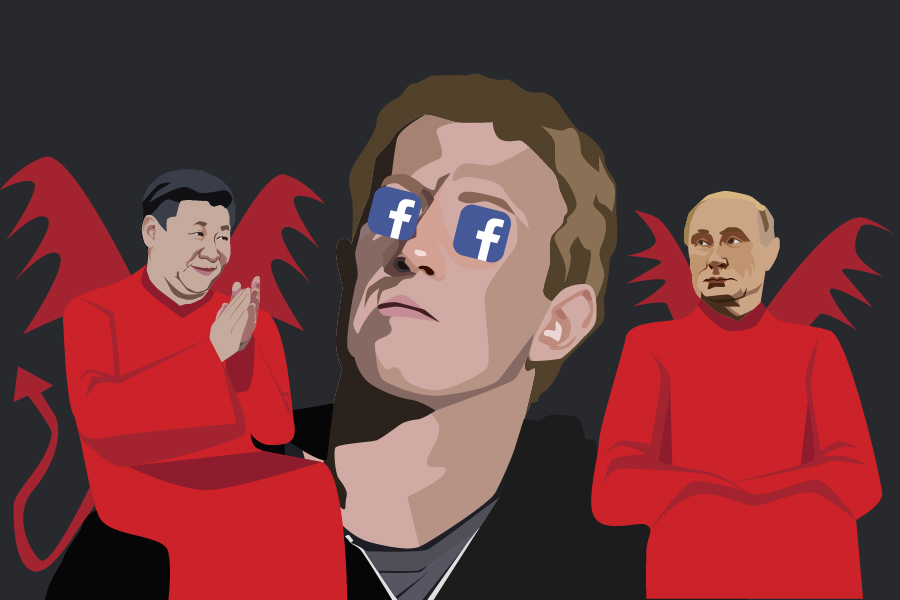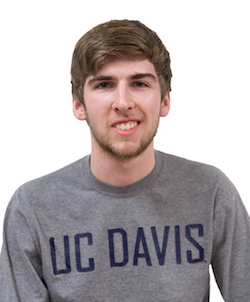
…but must expect far more from its audience to be an effective one
 After seeing “The Social Network” in 2010, its phenomenal acting, writing and directing convinced me that it indeed deserved to be a major awards contender. It wasn’t the overly hyped portrait of college life, Silicon Valley and a stupid website that I feared it might be. Nonetheless, I didn’t think of it as the type of movie I would ever make an effort to watch again. This is a movie that I once jokingly mocked when told it was “possibly the greatest ever made” because of its “use of a non-linear narrative.”
After seeing “The Social Network” in 2010, its phenomenal acting, writing and directing convinced me that it indeed deserved to be a major awards contender. It wasn’t the overly hyped portrait of college life, Silicon Valley and a stupid website that I feared it might be. Nonetheless, I didn’t think of it as the type of movie I would ever make an effort to watch again. This is a movie that I once jokingly mocked when told it was “possibly the greatest ever made” because of its “use of a non-linear narrative.”
However, Facebook has since become increasingly powerful worldwide, exemplified in its unwitting role in spreading Russian propaganda during the 2016 U.S. elections. After the Cambridge Analytica scandal broke last month, rewatching “The Social Network” became one of my top spring break priorities. Rewatching the film with hindsight exposed its flaws more clearly, convincing me that it’s absolutely necessary to make a sequel that addresses these flaws, the most serious of which is shared by the film’s subject, Mark Zuckerberg: a lack of foresight.
“The Social Network” becomes too much about the story’s characters and events and not enough about asking questions that would make the audience really think about the potential power and dangerous implications of this new tool. The only part of the film that stood out as being especially sharp and prescient occurred during an argument between Zuckerberg and co-founder Eduardo Saverin about whether they should start selling advertisements on the newly launched site (ironic enough in itself). Zuckerberg rejects this idea, saying, “We don’t even know what it is yet […] We don’t know what it can be, we don’t know what it will be, we know that it is cool. That is a priceless asset that I am not giving up.”
Obviously, this touches on quite a few issues that have arisen over the last decade and allows today’s viewers to let out a dark chuckle. Despite a few other pointed moments that have gained significance over time, the movie is mostly a self-contained, masterfully written, character-driven drama, sometimes sacrificing fact for fiction (or maybe not?).
One of the best ways to evaluate the impact of a film is to think about the questions it asks, especially the ones it leaves unanswered. Unfortunately, most of the questions asked in the movie don’t extend beyond itself, showing that it doesn’t expect much from its audience. The complicated motivations behind the lawsuits, bitterness and backstabbing often make the film unfold more like a dense fiction novel than a seminal work asking some of the most important questions about the future of privacy, social interactions and American democracy.
Because of this, the film invited an intellectual laziness from the audience that may have allowed the Facebook hype to overshadow the film’s merits. I recall many classmates wanting to see “the movie about Facebook,” showing that some of the movie’s commercial appeal resulted from an obsession over the website. Zuckerberg’s self-alienation and tough decision to send his ex-girlfriend a friend request briefly demonstrate Facebook’s social power and role in facilitating pseudo-intimate social interactions online, but its growing political power is entirely absent.
After finishing my rewatch and hitting the “last” button on the remote, I instantly found myself in the middle of a 20-minute news segment about Zuckerberg and Cambridge Analytica, reminding me just how much I crave a film that educates Americans on more than just the drama between Facebook’s founders. We’ve seen the ambitious and entrepreneurial Zuckerberg; now we must see the deer-in-the-headlights Zuckerberg struggling to meet the responsibility that he has brought upon himself like a curse.
In his recent testimony to Congress, Zuckerberg brought up points that would be essential to make viewers contemplate in a sequel. He said Facebook is undergoing a “psychological shift” in how it understands its responsibility in society — that they must not just “develop tools,” but also ensure that their tools are not being used for harm, whether that’s misinformation campaigns, terrorism, hate speech or mass data harvesting. He apologized that the company had not taken a “broader view” of its responsibilities, saying “I’m sorry.”
Zuckerberg said that his company is idealistic and optimistic and wants to reach as many people as possible. However, it’s entirely possible that he isn’t idealistic, just greedy. What do Facebook’s history of scandal, inability to self-regulate and sketchy actions, like its willingness to develop censorship tools for China, reveal about the company’s priorities? Is Facebook’s choice to expand at all costs, even when it compromises safety and free speech, an idealistic choice to connect as many people as possible, or a pragmatic one, to get data from as many people as possible? A recently disclosed memo suggests the latter.
Zuckerberg initially said that Russian manipulation of Facebook’s tools was a “pretty crazy idea.” Now, he is apologizing for not recognizing the threat sooner because not taking any responsibility would be the same as admitting that buying ads on Facebook does not work.
In essence, a sequel (can we call it “Mark Hindenburg?”) would need to focus on Zuckerberg’s struggle to temper Facebook’s power — and whether he even wants to. It now seems quite ironic that “The Social Network” focused on the legal battles over who deserved the most credit for developing the site. Even though the Winklevoss twins signed a non-disclosure agreement, are they legally allowed to laugh their asses off about this mess?
Written by: Benjamin Porter— bbporter@ucdavis.edu
Disclaimer: The views and opinions expressed by individual columnists belong to the columnists alone and do not necessarily indicate the views and opinions held by The California Aggie.









